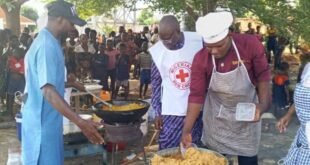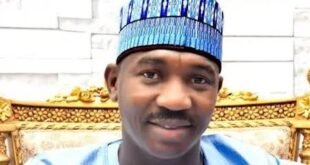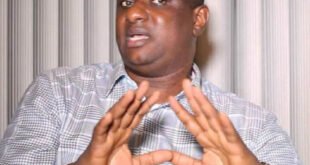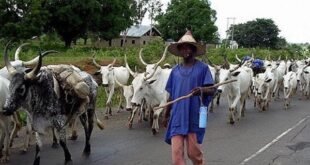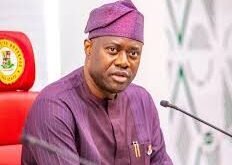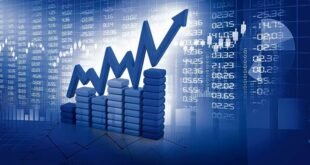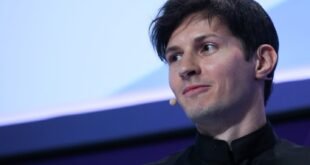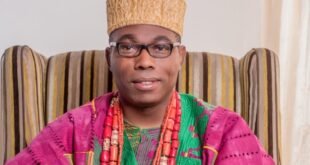The Socio-Economic Rights and Accountability Project (SERAP) has submitted a complaint to the World Bank Inspection Panel urging the Panel “to investigate allegations of corruption in the expenditure of loans and other funding facilities obtained by the Federal Government and Nigeria’s 36 state governors and to review the implementation of all World Bank funded projects by successive governments since 1999.”
SERAP urges the Inspection Panel “to determine the extent to which World Bank Management has followed or is following World Bank operational policies and procedures applicable to the design, assessment and implementation of all World Bank financed projects in Nigeria.
SERAP also urged the Panel “to determine the impact of World Bank Management’s failure to effectively implement its operational policies and procedures across all World Bank-financed projects in several states on the social and economic rights and social and economic well-being of millions of people. vulnerable Nigerians.
SERAP’s complaint follows a Debt Management Office (DMO) report last week, that Nigeria’s total public debt, including external and domestic debt, increased by ₦24.33 trillion in three months alone, from ₦97.34 trillion ($108.23 billion ) in December 2023 to ₦121.67 trillion ($91.46 billion) as of March 31, 2024.
In a letter dated June 22, 2024 and signed by SERAP deputy director Kolawole Oluwadare, the organization said: “The World Bank has over the years reportedly approved 197 projects for Nigeria, totaling more than $36 billion in loans and other funding facilities. [that is, $36,360,415,968.81]with little or no impact on Nigerians living in poverty.”
SERAP said, “Nigerians rarely receive meaningful and effective information and consultation on several World Bank-financed loans, facilities and projects. Nigerians continue to be denied the benefits of loans and facilities and access to basic public goods and services.”
According to SERAP, “Despite several loans and other funding facilities provided by the World Bank over the years, millions of socially and economically vulnerable Nigerians in several states and communities continue to lack access to regular electricity supplies and do not benefit from solutions renewable energy. .”
The complaint, addressed to the Panel Chair, read in part: “The latest report from the National Bureau of Statistics (NBS) reveals that more than 133 million Nigerians live in poverty, the vast majority of them women and children. Therefore, we would be grateful if the recommended steps are taken to hold the World Bank accountable.
“The failure of World Bank Management to follow World Bank operational policies and procedures in World Bank funded projects has resulted in alleged mismanagement of loans and facilities and left millions of Nigerians in extreme poverty.
“We are concerned about the negative impact of the lack of transparency and accountability in the disbursement of loans and facilities obtained by the Federal Government and Nigeria’s 36 state governors on the social and economic well-being of millions of Nigerians and the well-being of their lives. right.
“We are concerned that 36 Nigerian states and the FCT reportedly owe salaries and pensions to civil servants. Some states are borrowing to pay salaries. Millions of Nigerians living in these states and the FCT continue to be denied access to basic public goods and services.
“The Federal Government and some states are also reportedly spending public funds which may include loans and facilities obtained from the World Bank to fund unnecessary travel, purchase exotic and bulletproof cars, and generally fund the lavish lifestyles of politicians.
“The ₦121.67 trillion ($91.46 billion) debt represents foreign and domestic loans obtained by the Federal Government, 36 state governments and the Federal Capital Territory (FCT).
“The World Bank reportedly currently has a portfolio of around $8.5 billion spread across the country. The World Bank has also approved several loans and other funding facilities to 36 states including a $750 million credit line aimed at these states to undertake reforms to attract investment and create jobs.
“The World Bank recently approved a $2.25 billion loan for Nigeria to raise revenues and support economic reforms as well as address the country’s cost of living crisis.
“In September 2002, the Bank approved $129.00 million for a project entitled ‘Universal Basic Education Project: P071494’ ‘to increase the capacity of state and local governments to effectively and efficiently manage and implement the UBE program.’
“In May 2007, the Bank approved $180.00 million for a project entitled ‘Nigeria Federal Science & Engineering Education at Post-Primary Level (STEPB): P074132’, ‘to produce more qualified science and technology (S&T) graduates .’”
“In May 2000, the Bank approved $55.00 million for a project entitled ‘Second Primary Education Project: P066571,’ ‘to support the implementation of Universal Primary Education.’”
READ ALSO:SERAP sues Nigerian government for failure to account for former president’s loans
“In December 2000, the Bank approved $86.75 million for a project entitled ‘Community-Based Poverty Reduction Project: P069086’, to ‘increase poor communities’ access to social and economic infrastructure and improve the availability and management of development resources at the community level. ‘
“In March 2011, the Bank approved $160.00 million for a project titled ‘Nigeria – Growth & Employment: P069086,’ ‘to increase growth and employment in Nigeria.’
“In July 2020, the World Bank approved $500.00 million for a project titled ‘Adolescent Girls’ Initiative for Learning and Empowerment: P170664,’ ‘to increase secondary education opportunities among girls in targeted areas of participating countries.’
“The Bank also approved $500.00 million in June 2023 for a project titled ‘Nigeria Program for Women Enhancement Project: P179447,’ ‘to promote women’s economic empowerment and increase economic opportunities for unbanked women.’
“In June 2020, the Bank approved $750.00 million for a project titled ‘Power Sector Recovery Performance-Based Operations: P164001,’ ‘to improve the reliability of electricity supply, achieve financial and fiscal sustainability, and increase accountability.’
“In September 2022, the Bank approved $750.00 million for a project titled ‘Program of State Action on Business Empowerment Reform (SABER): P177442’, ‘to improve the efficiency and transparency of government-to-business services in participating states. ‘
“Years of alleged corruption and mismanagement of public funds including disbursement of loans and facilities obtained by the Federal Government and Nigeria’s 36 states have contributed to widespread poverty, underdevelopment and lack of access to public goods and services in the country.
“Allegations of corruption in loans and facilities provided by the World Bank raise questions about the World Bank’s thoroughness in conducting due diligence in assessing the social, economic and environmental risks of the projects it finances in this country.
“Inadequate security and accountability mechanisms for loans, facilities and project implementation have resulted in allegations of diversion of public funds for purposes other than those agreed with the World Bank.
“The World Bank appears to have failed and/or neglected to effectively implement its various operational policies and procedures to ensure transparent and accountable spending on its 197 loans and facilities in several states in the country.
“SERAP over the years has submitted several complaints to the World Bank about the lack of transparency and accountability in loans and facilities and projects financed by World Bank loans but World Bank Management has consistently failed and/or neglected to take concrete action. regarding these complaints.
“SERAP believes we have tried hard to resolve our complaints through several communications with Bank Management.
“The losses suffered by millions of socially and economically vulnerable Nigerians as a result of alleged corruption in the disbursement of loans and funding facilities provided by the World Bank constitute a violation of human rights guaranteed under the human rights treaties to which Nigeria is a state party. .
“As a special agency of the UN, the World Bank also has an obligation to promote transparency and accountability in the management of public resources and the implementation of the World Bank effectively and comply with the provisions of the UN Charter, as well as the UN Convention against Corruption. to which Nigeria is a state party.
“The World Bank has obligations under international anti-corruption and human rights laws, including the responsibility to promote transparency and accountability in the management of public funds, prevent mismanagement or misappropriation of public funds, and redress any abuse of public trust that may be caused by the World Bank. .
“The World Bank’s board of executive directors also has an obligation to ensure that the Bank’s policies and decisions are consistent with their own laws and the government’s obligations of transparency and accountability.
“The UN ‘Protection, Respect and Redress’ framework for business and human rights as well as the “Guiding Principles on Business and Human Rights among others impose on the World Bank the responsibility of companies to assess the potential risks of mismanagement or diversion of their investments and to seeks to prevent or mitigate such risks.”
The post Debt ₦121.67trn: SERAP asks Inspection Panel to hold World Bank accountable appeared first on Latest Nigeria News | Top News from Ripples Nigeria.
 JamzNG Latest News, Gist, Entertainment in Nigeria
JamzNG Latest News, Gist, Entertainment in Nigeria
